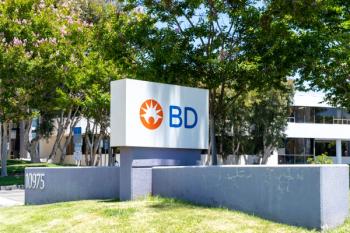
- LCGC Europe-01-01-2018
- Volume 31
- Issue 1
Separation Science in The Sunshine State
A look at what’s in store for chromatographers at Pittcon 2018, which takes place in Orlando, Florida, USA, from 26 February to 1 March 2018.
Marian Nardozzi, The Pittsburgh Conference, Pennsylvania, USA
A look at what’s in store for chromatographers at Pittcon 2018, which takes place in Orlando, Florida, USA, from 26 February to 1 March 2018.
Pittcon 2018 will be held at the Orange County Convention Center in Orlando, Florida, USA, from the 26 February until the 1 March 2018. While it is true that Florida is one of the great vacation spots in the United States, it is more than just beaches and theme parks. It is the perfect venue for Pittcon because its life sciences industry is considered one of the nation’s hubs of research and innovation. Other leading industries in the state include agriculture, pharmaceutical manufacturing, biotechnology, healthcare, and medical device manufacturing. Florida’s HighâTech Corridor spans 23 counties across the state, connected by three research universities, more than 20 local and regional economic development organizations, 14 community and state colleges, 12 regional workforce boards, countless industry groups, and the thousands of innovative companies that call this region home.
Pittcon 2018 will once again serve a highly diverse audience with a dynamic exposition that will feature chromatographic instruments from pumps, filters, and detectors to complete high performance liquid chromatography (HPLC), solidâphase extraction (SPE), gas chromatography (GC), and ion chromatography (IC) systems. In addition to a wide array of innovative products and services from leading companies, the exposition will offer educational opportunities, such as the DemoZone and the Nexus.
New this year, the Nexus offers continuous live interactive presentations on topics of general interest through two theatre-like settings located on the exposition floor. These sessions promise to be informative as well as entertaining, and the schedule can be found on the Pittcon website.
Product presentations from leading exhibitors will be performed continuously in the DemoZones, which are specified areas at the exposition. These will cover a wide variety of topics and attendees can ask questions, get answers, and see the latest and greatest innovations.
The lighter side of Pittcon, Alligator Alley, will feature a number of fun and exciting activities. Conferees can test their laboratory skills at the Lab Gauntlet or build and race a Lego car for prizes. Virtual reality stations will provide a unique sensory experience. On Wednesday afternoon, a live American alligator with a handler will be lazing in the Alley for a photo opportunity.
To complement the exposition, the technical programme will offer more than 300 technical presentations on topics related to chromatography in applications including, but not limited to, food, homeland security, fuel, environment, pharmaceutical, material science, and bioanalytics.
The following is a “snapshot” of the programme sessions for chromatographers:
- Recent Advances in Two-Dimensional Liquid Chromatography Separations: Chairman Dwight Stoll (Gustavus Adolphus College, St. Peter, Minnesota, USA) will bring together experts in liquid chromatography to discuss recent advances in 2D-LC separations of small and large molecules related to pharmaceutical and biopharmaceutical applications.
- Defending Against Food Fraud: Utilizing Old and New Technologies in the Fight Against Adulteration: Wendy Young (U.S. Food and Drug Administration) and Jonathan DeVries (DeVries & Associates, Minneapolis, Minnesota, USA) will chair a session that brings to light methods to quickly determine the procedures to keep consumers safe when fraudulent foods and ingredients are found.
- Advances in Environmental Analytical Chemistry: Impacts on Modern Petroleum Production Monitoring and Oil Spill Science will address recent analytical advances in the environmental monitoring of petroleum production activities and impact assessment of oil spills. Chairmen Ryan P. Rodgers (National High Magnetic Field Laboratory, Tallahassee, Florida, USA) and Kevin Schug (University of Texas at Arlington, Texas, USA) will lead the focus on advances in produced water, production chemicals, and oil spill characterization.
- Analytical Cannabis Symposium, organized by Joshua M. Crossney (jCanna, Inc.), pulls together analytical scientists, cannabis testing laboratory experts, and interested novices to discuss advancing QC testing in the cannabis industry.
- Recent Developments and Future Directions in Clinical Tissue Analysis: Towards In Vivo and Real-Time Diagnostics: In routine clinical practice tissue analysis is limited to histological tests. In the symposium chaired by Barbara Bojko (Nicolaus Copernicus University, ToruÅ, Poland), novel analytical strategies focused mainly on realâtime, in vivo, and in situ tissue analysis will be presented. Among others this will include tumours profiling, assessment of grafts during transplantation, in vivo brain analysis, and tissue imaging.
- Journal of Proteome Research and ACS ANYL - Advancing Measurement of the Proteome will probe new measurement strategies to study the proteome to discover disease and advance biological discoveries in this session chaired by John R. Yates (The Scripps Research Institute, La Jolla, California, USA).
For the fourth consecutive year, the LCGC awards will be presented at Pittcon. The LCGC Lifetime Achievement in Chromatography Award will be presented to Ronald Majors from ChromPrep; and the LCGC Emerging Leader in Chromatography Award will be given to Zachary Breitbach from AbbVie.
Editorial director of LCGC, Laura Bush, will moderate a special session of talks presented by major figures in the separation science sector, including the two award winners on Monday 26 February at 13:30 in Room 311AB:
- HPLC and UHPLC Column Technology: Past, Present, and Future by Ron Majors, ChromPrep (USA)
- Column Pore Size-An Underutilized Variable for Optimizing HPLC Separation by Richard A. Henry, Independent Consultant
- Troubleshooting HPLC Column Problems-Will It Ever End? by John W. Dolan, LC Resources (USA)
- High Efficiency Chiral Separations in HPLC and SFC by Zachary S. Breitbach, AbbVie (USA)
- Ionic Liquids in Separations and Mass Spectrometry by Daniel W. Armstrong, University of Texas at Arlington (USA).
Robert Kennedy, the Willard Professor of Chemistry at the University of Michigan (USA), will be awarded the 2018 Chromatography Forum of the Delaware Valley Dal Nogare Award. An awardee is chosen on the basis of his or her contributions to the fundamental understanding of the chromatographic process. Robert Kennedy is being recognized for his contributions to the theory and application of separation science in neuroscience, endocrinology, and biotechnology.
Included in this award session organized by Mary Ellen McNally from FMC Agricultural Solutions (Philadelphia, USA) and held on Monday 26 February from 8:30–11:50 in Room 311CD will be the following presentations:
- A Bonded Phase for Resolution and Sensitivity in RPLC–MS of Proteins, Mary Wirth, Purdue University (USA)
- Target Analyte Detection in Nanoflow LC Using Serially Arranged Column Segments, Milton Lee, Brigham Young University (USA)
- Universal Derivatization of Metabolites for Improved Sensitivity in LC–MS, James Edwards, St. Louis University (USA)
- Mapping the Glycoproteome with Activated Ion Electron Transfer Dissociation, Joshua Coon, University of Wisconsin Madison (USA).
This year’s Wallace H. Coulter Lecture at the start of the technical programme “Analytical Science in Precision Medicine: Facing the Challenges of the 21st Century Healthcare” will be delivered by Jeremy K. Nicholson, Head of the Department of Surgery and Cancer and Director of the MRC-NIHR National Phenome Centre Faculty of Medicine (Imperial College London, UK). He will discuss how precision medicine may offer more efficient and effective healthcare solutions in the 21st century using high resolution analytical technologies and sophisticated computational modelling.
Stefan W. Hell, Director at the Max Planck Institute for Biophysical Chemistry in Göttingen (Germany) and Director at the Max Planck Institute for Medical Research in Heidelberg (Germany), will deliver the Plenary Lecture “Optical Microscopy: The Resolution Revolution”, which will address the simple yet powerful principles that allow neutralizing the limiting role of diffraction. This will be held on Tuesday 27 February at 17:00 in the Chapin Theatre.
Pittcon also offers an affordable short course programme that offers more than 60 courses covering topics relevant to GC and LC. These classes, taught by leading experts in their field, range from beginner to intermediate to advanced levels in halfâday up to two-day sessions. Short courses are appropriate for the seasoned professional, the recent graduate, or the researcher interested in learning a new skill set.
The following is a sample of short course titles for chromatographers:
- HPLC/UHPLC for Practicing Scientists 1: Fundamentals and Pharmaceutical Applications, an intermediate one-day course taught by Michael Dong, MWD Consulting, Saturday 24 February 8:30–17:00.
- Introduction to Chromatography of Proteins, Peptides, and Related Molecules, a one-day beginner course taught by Thomas Wheat from Chromatographic Consulting, LLC., Saturday 24 February 8:30–17:00.
- Mastering High Performance Liquid Chromatography (HPLC), a half-day intermediate course taught by Lee Polite from Axion Analytical Labs Inc., Tuesday 27 February 8:30–12:30.
- Countercurrent Chromatography and Centrifugal Partition Chromatography, a 1.5-day beginner course taught by Martha Knight from CC Biotech LLC., Wednesday 28 February 13:00–17:00 and Thursday 1 March 8:30–17:00.
Another very unique opportunity to network with colleagues from around the world is through the conferee networking sessions, which begin on Sunday 25 February 2018 and are open to all full conferee registrations at no extra cost. These informal sessions will appeal to attendees with similar interests to meet and discuss a specific topic in a wide range of disciplines.
Pittcon’s new and improved mobile app is available for free download for iOS and Android mobile devices. It provides complete details about exhibitors, live demos, technical sessions, short courses, conferee networking, and gives access to maps and local Orlando dining and nightlife. Users are now able to create an agenda, which will sync across devices and with the online desktop planner.
Registration includes unlimited, week-long access to the exposition floor, live demos, technical programme, conferee networking sessions, and all amenities. Thursday will be a free day and will include entrance to both the programme and exposition.
Attending Pittcon is an empowering experience. Participating in this dynamic conference and exposition will bolster your survival in a competitive world by keeping you up to date on the latest techniques and scientific developments to foster excellence on the job. The innovative solutions and instrumentation offered will help your laboratory run at peak efficiency. This is an ideal opportunity to build collaborative relationships and network with colleagues from around the world to expand your scientific resources.
Complete listings and details on all technical sessions, short courses, and exhibitors are available at
Contact: Kim Palastro
E-mail:
Registration:
Stay Connected with LCGC
The LCGC team will be at Pittcon 2018 (Booth 1219), bringing you the latest news and updates from around the event. Tweet us via @LC_GC to keep up-to-date or to send us your personal conference highlights.
Articles in this issue
about 8 years ago
Tips and Tricks for New Gas Chromatographersabout 8 years ago
What’s New in the New USP ?about 8 years ago
Analyte Derivatization as an Important Tool for Sample Preparationabout 8 years ago
Microscale Separations and Bioanalysis (MSB 2018)about 8 years ago
Vol 31 No 1 LCGC Europe January 2018 Regular Issue PDFNewsletter
Join the global community of analytical scientists who trust LCGC for insights on the latest techniques, trends, and expert solutions in chromatography.




